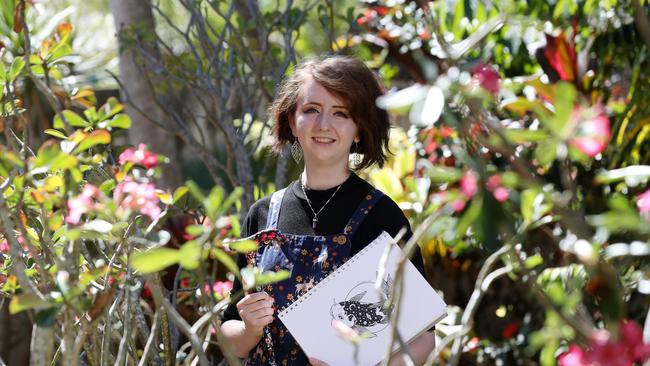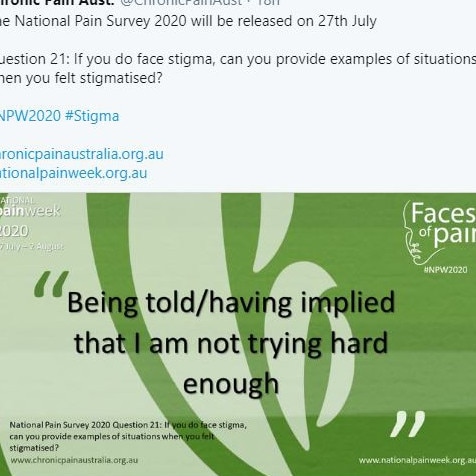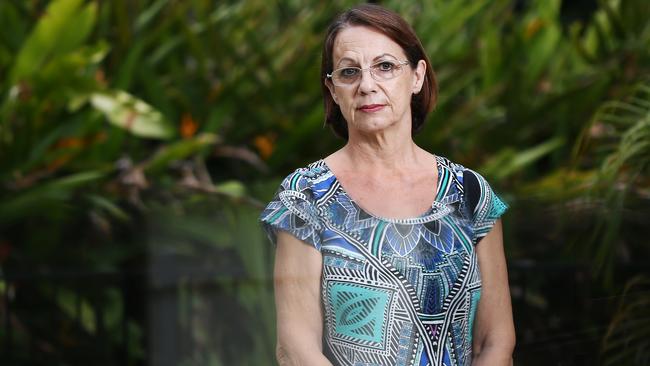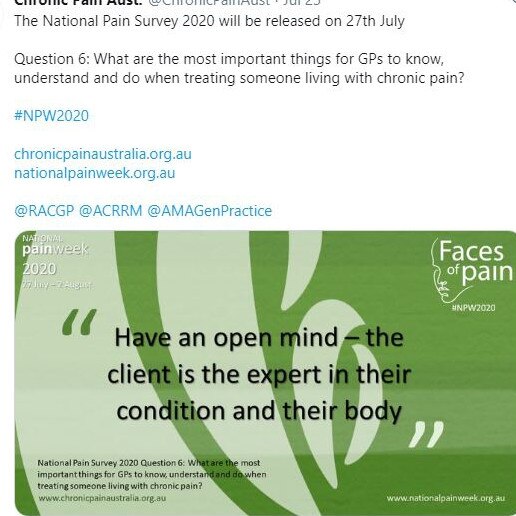National Pain Survey: Trust in GPs and chemist plummets
A National survey into chronic pain has revealed a stunning loss in confidence in doctors as patients battle to get the treatment they need to get through the day.

Cairns
Don't miss out on the headlines from Cairns. Followed categories will be added to My News.
KALISHA Fitsch’s body is at war with itself.
The 22-year-old artist suffers from hypermobility type Ehlers-Danlos Syndrome (EDS), a largely unknown disease that attacks joints and connective tissues.
“Just popping into the shops leaves me with pain in my knees and ankles for the rest of the day, or simply typing an email leaves me with nerve pain in my fingers,” Ms Fitsch said. “Simply twisting open a water bottle can pop my finger joints out of place and put me in pain for days.”

Like countless chronic pain sufferers in the Far North, Ms Fitsch endures the daily stigma associated with hidden or invisible diseases.
“When I’m out and about with my walking stick in hand, there is rarely a day where I don’t get strange looks,” she said. “I get it. It’s different and it’s unusual to see a young person with a walking stick.
“But please understand … we’re just trying to live life the best we can, just like you.”
The National Pain Survey, released for National Pain Week, has shed light on the plummeting trust that sufferers have in doctors to advocate on their behalf.

Debbi Cliff, 61, also suffers EDS and knows too well the exhausting effort to get through the day.
“I hate that I put on a brave face and always say I’m OK so others don’t know what I’m actually going through and I hate that therapies that help like massage cost so much and aren’t covered on GP plans,” Ms Cliff said.
“Most of all I’m tired, just bone tired from being in constant pain. The general public, unless they are chronic pain sufferers, have no understanding of what we go through, neither do most doctors, unless you have chronic pain you just don’t get it.

“I want people to understand that the pain in most of my joints and muscles, on a good day, feels like I overdid it in the gym the day before or I’m coming down with the flu, that’s a normal pain day.”

President of Chronic Pain Australia, pharmacist Jarrod McMaugh, said much of the stigma for chronic pain sufferers was felt from the caregivers whose help they sought.
“If people have a longstanding relationship with their doctors, it’s usually very good,” he said. “But if you are seeing a new doctor there is immediate scepticism. It is very destructive and creates stigma.”
When asked to rate how people felt their GP was managing their pain the average score was 5/10.
In 2018 and 2019 when these same questions were asked about GPs the average score was 9/10 and 8/10 respectively.
Much of the deterioration has stemmed from tightened rules over the supply of medication used by chronic pain sufferers.
“The relationship deterioration between people living with chronic pain and their GP and pharmacist is very concerning,” Mr McMaugh said.
“A lot of patients feel they are being scrutinised.”
RELATED: THE BEAST - THE WORST PAIN KNOWN TO MEDICINE
MS sufferer Samantha Vince, 52, is another silent victim of a health system that has failed to cater for complex and chronic pain conditions.
“Finding a doctor that understands has been a challenge for me.” Ms Vince said.
“Suffering chronic pain is suffering in silence..it gets you down and affects your sleep, work capabilities and all of your relationships. It has caused me to feel depressed and hopeless many times and even thoughts that I want to be free from this pain.... chronic pain changes who you are.”
The Queensland branch of the Ausralian Medical Association was asked for comment.
RELATED: THE AGONISING DISEASE SUFFERED BY THOUSANDS IN THE FAR NORTH
NATIONAL PAIN SURVEY RESULTS
■ 87 per cent see an allied health professional, but 83 per cent do not find it affordable.
■ Stigma is one of the biggest issues, with respondents facing daily discrimination.
■ Only one-third of respondents have spoken to their GP about medicinal cannabis due to fear about how doctors will react.
■ 41 per cent have found disruptions with medication supply in the past year.
Originally published as National Pain Survey: Trust in GPs and chemist plummets
